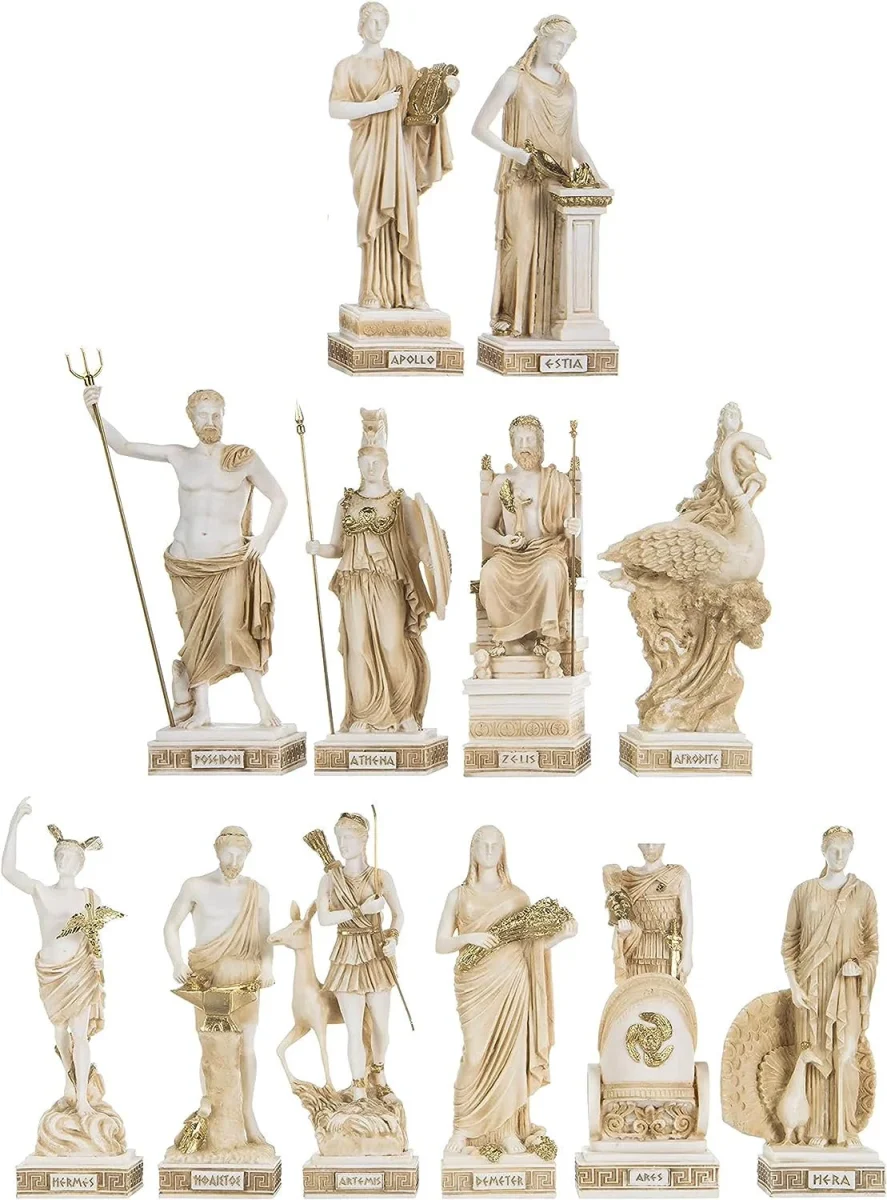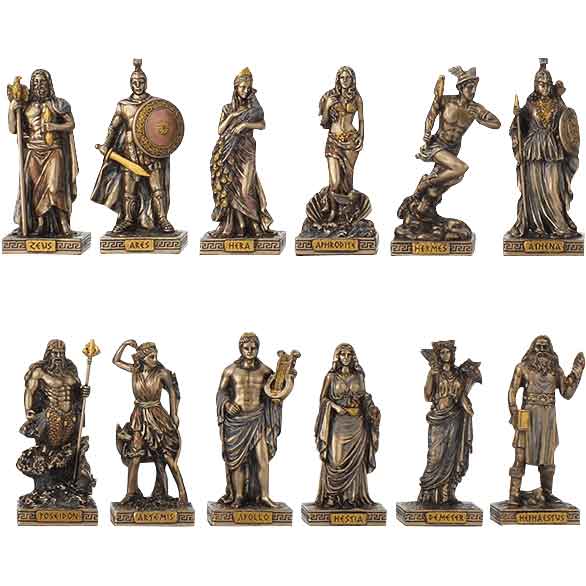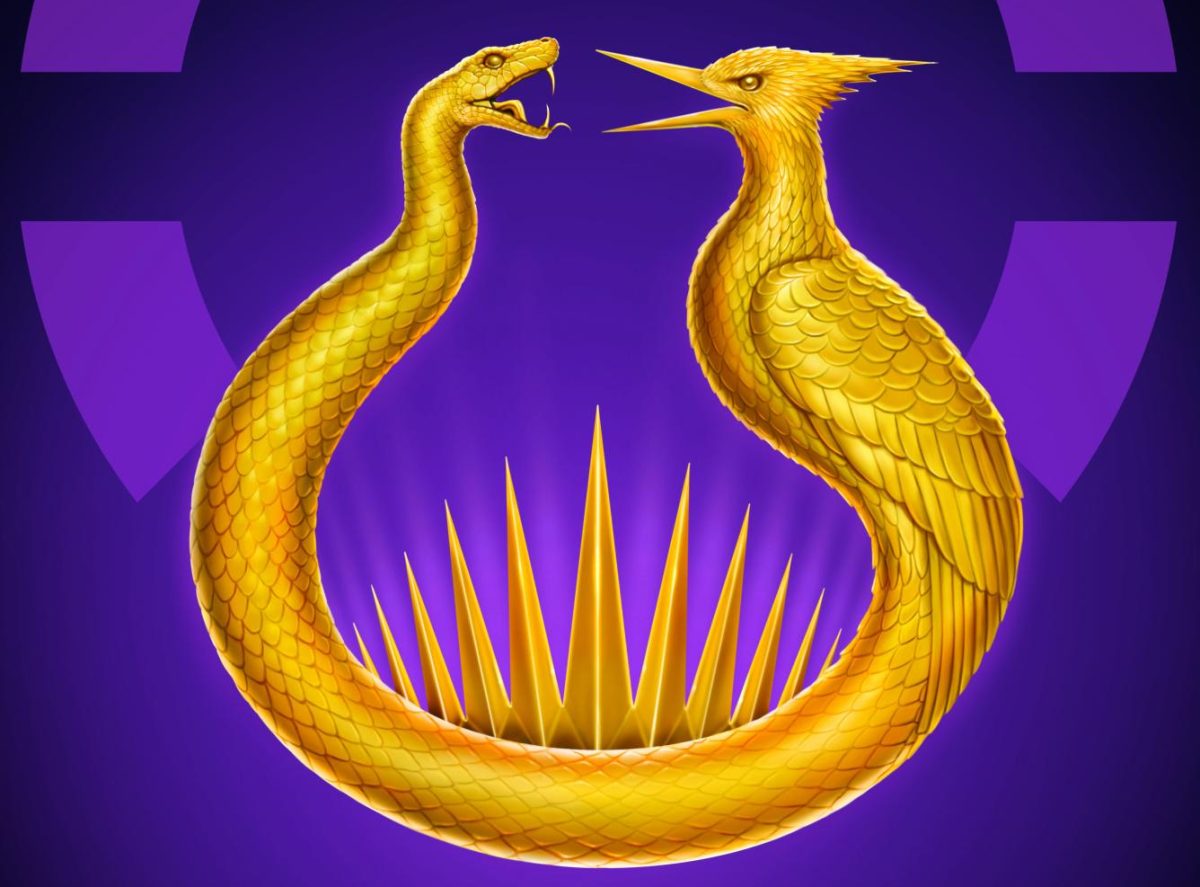Have you ever been to Athens? Had a baguette with some olive oil? Do you have one of those hats that make you look like you’ve been shot through the head with an arrow on Valentine’s Day? Those are all references to the gods of an empire, namely Ancient Greece. In this article, six of the twelve most noteworthy gods in the Greek Pantheon, referred to as “the big twelve”, are listed and analyzed.
Aphrodite
Aphrodite is the goddess of love and beauty. Commonly pictured as a lovely woman in popular art and literature, she married the god of the forge, Hephaestus, but has a different lover, namely Ares, the god of war. As you will read, most of the gods are far from faithful. Because of Aphrodite’s beauty, the gods of the big twelve all wanted to marry her, but in some myths, Hephaestus fashioned a lovely gold throne and gifted it to Hera, the Queen of gods and his mother (who just so happened to throw him out a window, but you’ll read about that later). When Hera sat down in the chair, it tied her up so tightly that she couldn’t escape. Hephaestus agreed to free Hera if Zeus, King of the gods, agreed to let him marry Aphrodite. Zeus did, and Aphrodite married Hephaestus. But the god of the forge was deformed and ugly from birth, and Aphrodite took this marriage as a personal affront. She had fallen for Ares, and would meet in secret with him.
Apollo
Apollo is the god of the sun, music, poetry, and art. He had many lovers, but only two of them really stood out. The first was Daphne, a nymph. Apollo had angered Eros, or Cupid, and was shot with a love arrow. Daphne, on the other hand, was shot with an arrow of lead, which did the opposite. When Apollo continued to pursue Daphne, she pleaded with her father for help, and he agreed, transforming her into a laurel tree. His other lover, Hyacinthus, was a beautiful young prince. While Apollo was teaching Hyacinthus how to play discus, Apollo’s throw was so powerful that it rebounded and struck Hyacinthus in the head, killing him. In his grief, Apollo transformed some of his dead lover’s blood into what we now know as the Hyacinth flower.
Ares
Ares is a god of war. He is one of the two major candidates, but also the more commonly recognized god with a war-based function. Ares is the god of thoughtless, violent battles. He is Aphrodite’s lover, and was once captured in a huge bronze jar by a pair of cyclops.
Artemis
Artemis is the goddess of the hunt and all wild nature. Normally pictured with a deer or other wild animal and a bow in her hand, Artemis is the goddess of the moon and Apollo’s sister. When she was born, she sat on her father Zeus’s knee and asked him to grant her six wishes, including: To remain a virgin forever, so that Aphrodite had no power over her; to have numerous names, so that she wasn’t lumped in with her brother Apollo; to have a bow and arrow and a short tunic, so she could hunt, among other things. It was said that she only once hunted with a male, and his name was Orion. Orion and Artemis had a friendly relationship, but when Orion became cocky and boasted that he could hunt anything, Artemis grew angry and suggested a challenge: Orion would try to hunt and kill Artemis, then Artemis would track and try to kill Orion. Orion failed, but Artemis succeeded. After she had killed him, she placed her friend in the sky to honor him, and we now know him as the Orion Constellation.
Athena
Goddess of wisdom and war, Athena is the other major war deity. The difference between Athena and Ares is that Athena represents the planning and strategy of war, while Ares represents the blind rage of battle. She participated in the Trojan War by telling one of her heros to build a huge horse and hide his soldiers inside, then present it to the opposition as a “peace offering”. This is where the concept of the Trojan Horse comes from. One popular myth features Athena and Poseidon, god of the sea. Both wanted to be the patron god of a city called Cecrops, so they had a contest, in which the gods would each present a gift and the people would vote on which they preferred; the god who had given that gift would win. Poseidon summoned up a spring of saltwater, which the Athenians determined could not be used for drinking, bathing, cleaning, or watering crops. Athena presented an olive tree, and showed how it could be used to make oil, the olives could be consumed, and they could use the wood for building. Athena won, and the city was renamed Athens in her honor.
Demeter
Demeter is the goddess of crops, fertility, plants, and the harvest. One interesting myth featuring Demeter is about Hades, god of the underworld, and Demeter’s daughter, Persephone. Hades fell in love with Persephone and asked Zeus if he could marry her (to which Zeus said yes) and snatched her from a field of flowers one day, bringing her to the underworld. When Demeter discovered that her daughter was missing, she asked around and discovered that Hades had kidnapped her. Meanwhile in the underworld, Persephone grew hungry and accepted a single pomegranate seed. Demeter became so anguished that she refused to let the earth bear a single crop, bringing death and plight to mortals. Zeus finally stepped in, and Hades relinquished Persephone for only three quarters of the year, because she had eaten the pomegranate seed; it bound her to the underworld. The myth says that Persephone descends to the underworld in the winter, and Demeter becomes so unhappy that the earth becomes cold and bears no crops. When Persephone returns to Demeter in the spring, Demeter’s joy grows and so does the foliage.






















